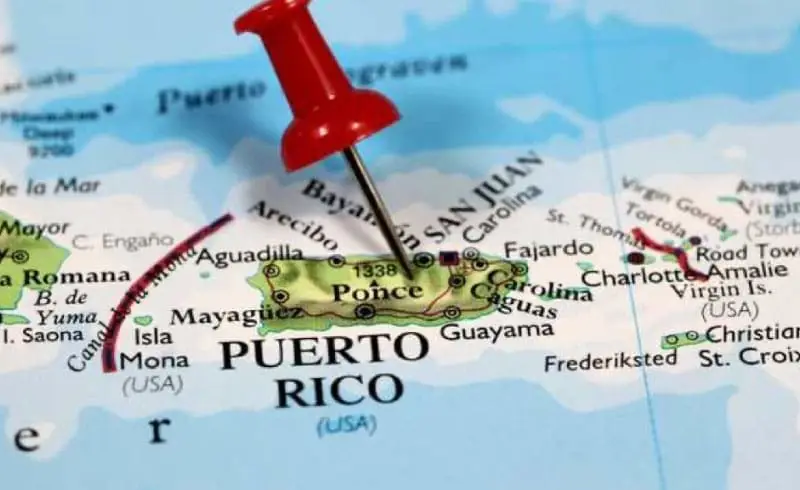Looking to cut your business income tax rate by up to 90%? Locating in Puerto Rico might be your answer — if you’re willing to play by their rules.
What Is Act 20?
It’s no secret that Puerto Rico needs to boost its economy. And because it enjoys a special status within the United States, it can offer tax incentives similar to offshore tax havens, without the possible risks of location in a foreign country.
Thus, in 2012 was born Act 20, the Export Services Act. Its goal is to attract employers to the island, who will invest their capital there and hire Puerto Rican workers. If your corporation qualifies, you will be exempt from U.S. income tax; instead, you will pay Puerto Rican tax at a rate of only 4% on your Puerto Rican-sourced income.
Who Qualifies?
Only service-based companies are eligible to receive Act 20 tax rates and credits. Some types of business that qualify are:
• Consulting
• Call centers
• Voice and data telecommunications (between persons located outside of Puerto Rico)
• Electronic data processing centers
• Shared service centers
• Software development
• Information systems and other technological services
• Research and development
• Scientific or environmental services
• Medical, hospital and laboratory services
• Engineering and architectural services
• Economic services
• Investment banking and other financial services
• Legal, tax and accounting services
• Auditing services
• Managerial and human resource services
• Advertising, public relations, and marketing
• Commercial art and graphic design
Who Can You Provide Services to?
Your business must provide services FROM Puerto Rico TO outside markets. If you do business with residents, businesses, or government entities within Puerto Rico, you will not be eligible. This includes real estate sales, legal advice on Puerto Rican laws, and lobbying the Puerto Rican government.
Also, e-commerce businesses probably won’t qualify, unless they can prove that they are working entirely from Puerto Rico. For example, an Amazon FBA seller won’t qualify because even though the company’s office is in Puerto Rico, the delivery service is being provided by warehouses in the U.S. The same is true of services sold from a personal website, drop-shipping, SaaS, app sellers, online ad arbitrage, affiliate marketing, and niche websites — all very difficult to prove the source of the service.
How Do You Establish the Company?
Your business must be incorporated in Puerto Rico. You may choose to sell your business assets to the new Puerto Rican corporation. An easier option is to reorganize the company as a Puerto Rican corporation (tax-free).
Next, you must hire Puerto Rican workers. In general, the minimum number of workers is five, although there are exceptions as low as one. These employees must receive full social security benefits and other mandated employee coverage (such as employment tax). And these must be real jobs, not just paper ones to meet the regulations. When the Puerto Rican government audits you, they will demand proof of actual work being done.
What Is Bona Fide Residence?
Originally, Act 20 allowed you to qualify your company for the 4% corporate income tax, yet qualify yourself (the company owner) as a non-resident in order to be exempt from Puerto Rico’s personal income tax.
That changed with Trump’s tax reform. Now, if you remain a U.S. resident while your corporation is getting the Puerto Rico tax break, the U.S. will tax the company an additional 6.5%.
The only way to avoid this is to become a bona fide resident of Puerto Rico. This will involve moving your “center of life” to the island and spend at least 183 days of the year there. You will have to build a case that your financial activity, family home, and possessions, social, professional, and cultural ties are all in Puerto Rico. You will also need a Puerto Rican voter’s registration and driver’s license.
How Do You Get the 4% Tax Rate?
Apply to the Puerto Rico tax authority for a tax concession and tax exemption decree. The decree is good for 20 years and may be extended another 10 years after that.
If you meet the qualifications above, you’ll enjoy a 4% fixed corporate income tax rate; and it could even be as low as 3% if your services are deemed strategic to Puerto Rico. You could also receive:
• 100% tax exemption on distributions and dividends from earnings and profits
• 100% tax exemption from personal and real property taxes for the first five years and 90% thereafter
• 60% tax exemption on municipal taxes
Bottom Line: Is It a Good Idea?
Act 20 may be a great choice for your business. However, we have two major caveats to keep in mind when making your decision.
The first is that tax laws are subject to change; we’ve already seen it with the Trump tax reform. And ultimately, Puerto Rico will not be able to stand up to U.S. demands for change. You could move your whole life there, only to see your reason for doing so evaporate.
The second is that many people seem to be trying to use Act 20 to their advantage without fully abiding by its requirements. Whether they’re just cutting a few corners or outright cheating, it’s getting the attention of the authorities. This again could lead to unwelcome changes, excessive audits, and other annoyances.
xendoo tax experts can help you sort out your options and determine which are the most financially rewarding. Give us a call today!









